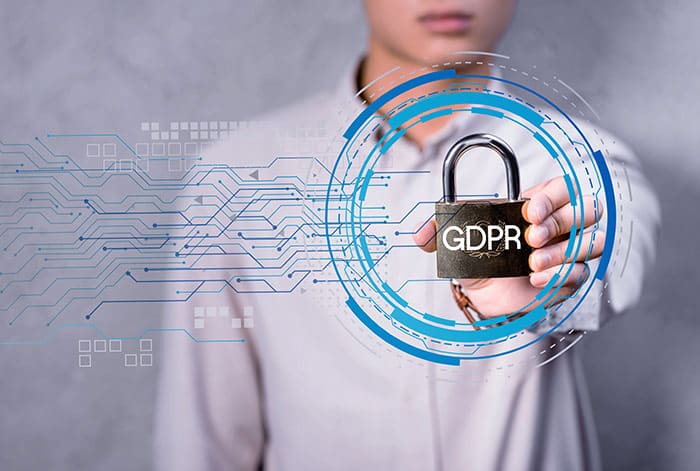Are you a company or enterprise doing business with an EU-related organization or client? If so, the GDPR compliance is something you need to be aware of. The EU brought a new regulation into effect on May 25, 2018, which imposes obligations on all organizations targeting and collecting data of people in the EU. And aspects of this regulation affect businesses’ data processing abilities as well as storing personal data, call recording, etc.
What is GDPR Compliance?
The General Data Protection Regulation (GDPR) is the strictest privacy and security law in the world. Advancements in technology and the invention of the internet have paved a new way for invaders and hackers to gain personal data. And this has brought light to the need for modern protection. In this day and age, individuals are more trusting of the internet and cloud services and are often sharing personal and sensitive information in places where they can be abused.
The GDPR regulation provides a strong stance on data privacy and security. Any company not paying attention to GDPR’s laws and in accordance with GDPR compliance can suffer harsh fines and penalties. However, because of its length and depth, it can be an overwhelming prospect to understand and follow, especially for small businesses.
Important GDRP Principles
If you are a company processing customer data on the daily, then GDPR compliance is a requirement for your business. Here are the seven principles that serve the protection of data as well as accountability:
- Lawfulness, fairness, transparency ‒ Process personal data in a lawful, fair, and transparent manner in relation to the data subject
- Purpose limitation ‒ Process and collect data for specified, explicit, and legitimate purposes and not a manner incompatible with those purposes
- Data minimization ‒ Collect data that is adequate, relevant, and limited to what is necessary to be processed
- Accuracy ‒ Keep accurate and up to date information. Inaccurate data should be erased or corrected without delay
- Storage limitation ‒ Store for no longer than necessary unless stored for archiving purposes in the public interest, scientific or historical, or statistical purposes.
- Integrity and confidentiality ‒ Process in a way that ensures the security of personal data and protection of unlawful or unauthorized processing
- Accountability ‒ Controller should be responsible for and demonstrate compliance with all of the above
Call Recording and GDPR Compliance
These principles ensure that enterprises requiring data processing and retention follow GDPR compliance. Not many realize that call recording is one means to collect and store customer data. Call recording can serve as a highly resourceful tool to improve a business’ communication and customer interaction. With the ability to reference old calls, mistakes, and achievements, companies can use recordings to improve how they interact with their clients. Recording business calls is a form of data processing because these calls often contain the exchange and sharing of personal data.
GDPR compliance for call recording outlines when a recording may occur and how it should be treated. Tacit consent is not sufficient. Instead, individuals must agree and provide consent to have their call recorded. This consent should be clear, specific, and unambiguous. To justify their need to record calls, one of the below conditions should be fulfilled:
- Individuals participating in the call have given consent — verbal acceptance during the call, consent after receiving a message, or consent as part of a customer agreement — to be recorded
- Recording the conversation is necessary to fulfill a contract
- Call recording is in the public interest
- Recording the call is required to fulfill a legal obligation
- Call recording is necessary to protect one or more participants
- Recording conversations are in the recorder’s interest unless those interests are less important than the interests of all participants of the call
However, besides following these conditions and receiving appropriate consent to record, businesses also need to arrange and store their files in a way that is easily accessible. They should be able to recall audio files as requested and delete personal data upon request. Your company should follow these regulations to be GDPR compliant and avoid heavy fines.
Record Calls With United World Telecom
Now that you know what GDPR compliance entails, it is time to reconsider how and when you need to record calls with customers and clients. Contact us today at 1 (877) 898 8646 to find out how you can get call recording for your business.

